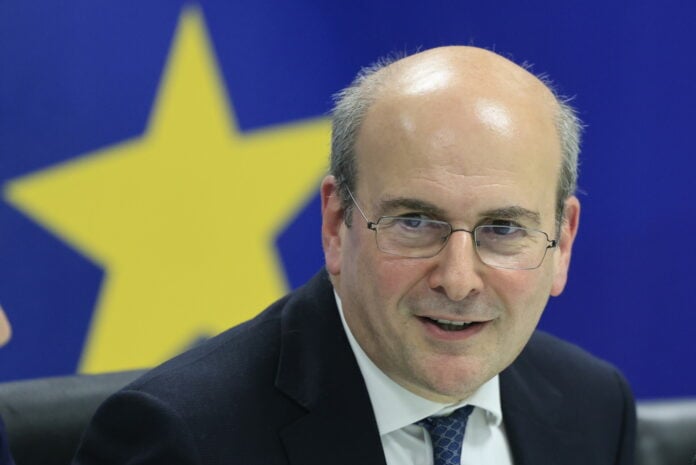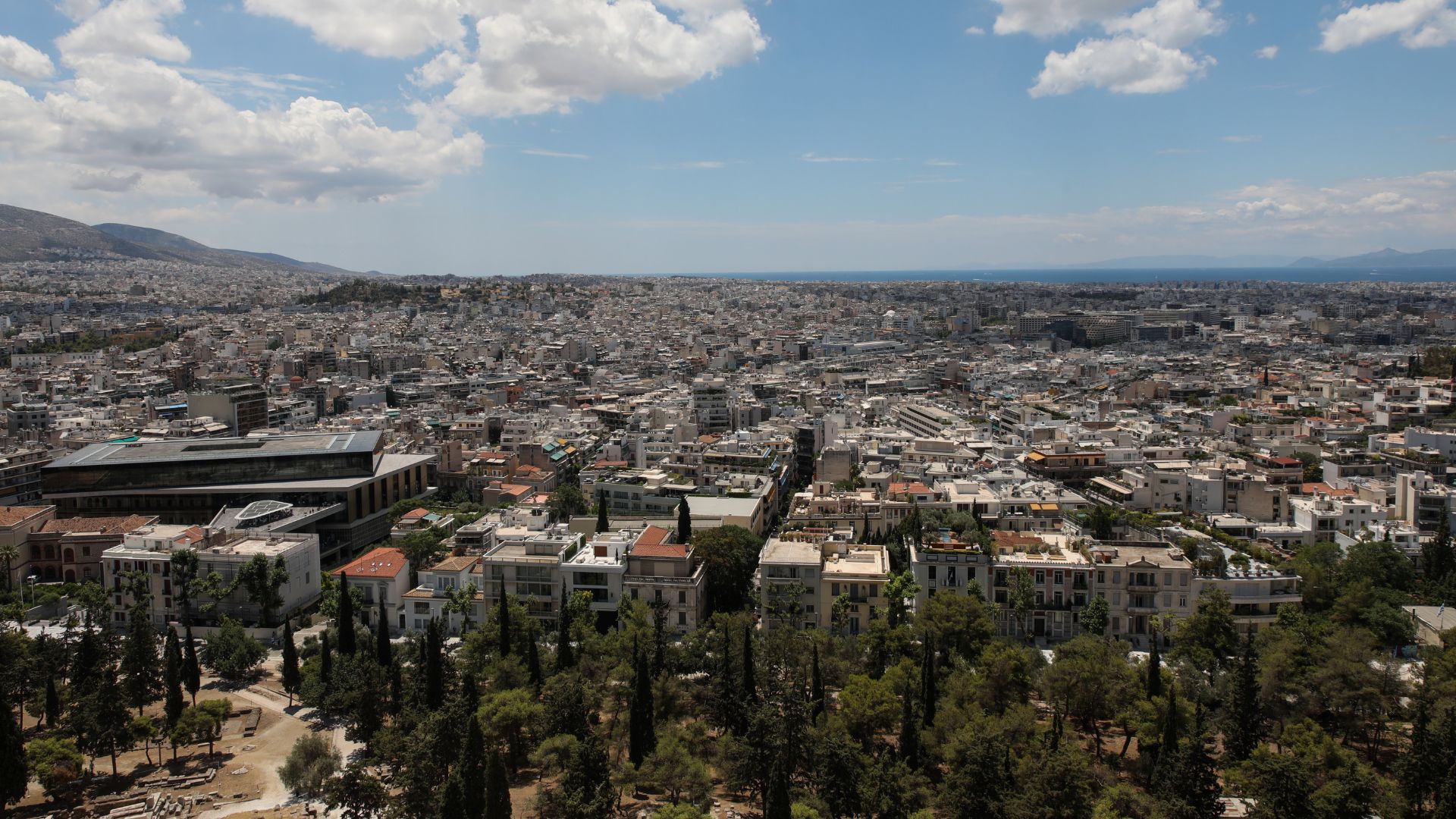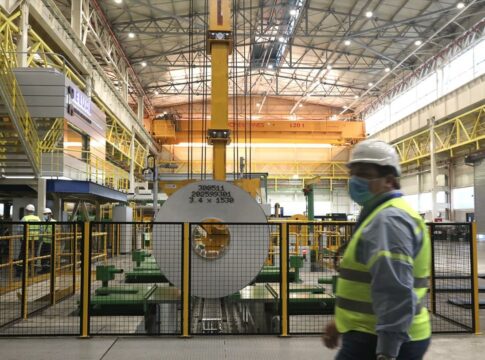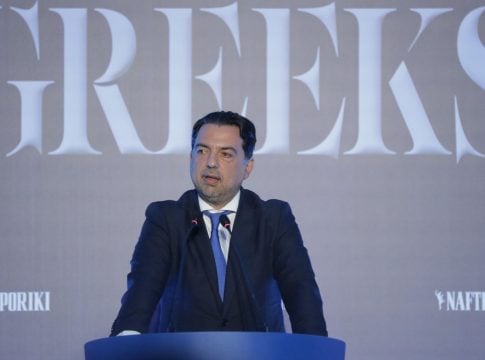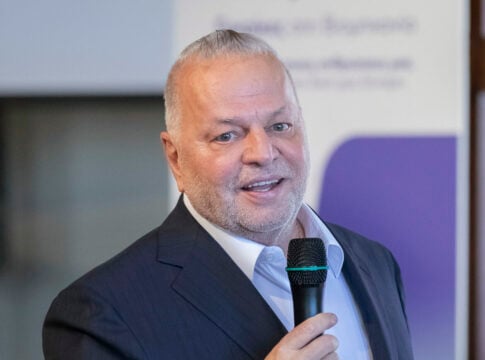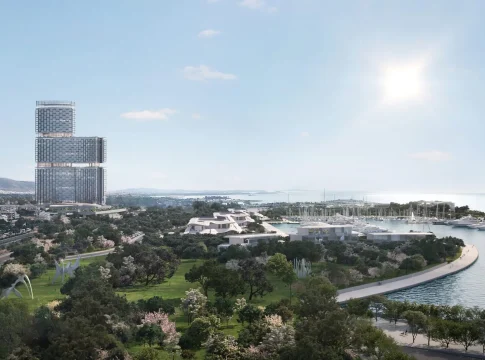The “deep” state and its problems are prioritized by the Deputy Prime Minister, Kostis Hatzidakis, in an exclusive interview with “N.”
He stressed that his intention is to give special emphasis to the modernization of public administration, addressing long-standing problems, focusing on issues related to the evaluation of public sector employees and a different approach to the citizens.
In his interview with “N”, the Deputy Prime Minister, commenting on economic issues, pointed out that the operation of the National Investment Fund is about to start, adding reforms will be intensified, competition will be enhanced and the establishment of specialized courts, such as for competition and industrial property, are under consideration, while important steps are to be implemented for the best possible utilization of public property.
As for the government’s intentions to provide more benefits to society, he stressed that there will be a growth dividend in both 2025 and 2026 and that the government will insist on its basic principle of constantly ensuring fiscal prudence and high rates of economic growth.
What will follow the Recovery Fund? How will the capital flows that entrepreneurship currently ensures be covered?
“The country’s funding from the EU is the highest per capita, among the 27 member states, as a result of the Prime Minister’s own negotiation a few years ago. It is true that, in addition to the NSRF and the CAP, the Recovery Fund was also added. It is too early to talk about the evolution of the Fund, because we know that the richer countries will not want the program to continue. However, one should look at the new fiscal framework as a whole, the support map, and especially to assess Greece’s position. However, the government is preparing for the round of negotiations that are about to begin.
As a country, from the new multiannual financial framework, we will demand the financing with sufficient resources of the basic development and social sectors, and of critical public goods with multiplier benefits, such as defense armor and energy interconnections. This negotiation is at a very early stage and everything will depend on the structure of the new multiannual financial framework, on what the role of agriculture and cohesion will be, on what the benefit of Greece will be from the common defense policy, but also on the country’s profit from actions that will finance competitiveness and innovation. I would add the environmental actions, where a series of investments can be financed through the Pollution Fund. “As wrong as complacency would be, it would be equally wrong to give the impression that even if there is indeed an issue with the Recovery Fund, the country will be left helpless. In any case, however, what is important is to further strengthen private investments and especially foreign direct investments, because these are what will ensure the greatest support for the economy.”
Will new sources of financing or more incentives increase investment financing flows?
“In private investments, we have implemented a series of steps, such as the ‘Invest in Greece’ law, the operation of the framework for strategic investments and the simplification of licensing. The results are visible: total investments have increased by 64% between 2019-2023, while over 32 billion euros in Foreign Direct Investments had flowed into the country by the end of 2024. However, there are some key outstanding issues, the most characteristic of which is the finalization of the special spatial planning for industry and tourism, as well as the acceleration of special and local urban plans, which will clarify the land use framework. We have also set a goal of reducing bureaucracy and administrative burdens by 25% – something that will give investors and investments a breather. At the same time, we are also planning interventions to further simplify the relations between citizens and the state.”
The government has also expressed its intention to change the country’s production model. Although steps have been taken in this direction to date, we see that the basic structure of the production model has not changed…
“The impression that investments in Greece are limited only to real estate and tourism is incorrect. On the contrary, the participation of industry in GDP has increased in recent years from 12% to 14%. Also, exports of goods, despite individual fluctuations, have more than doubled compared to the pre-crisis period. There has also been an increase in the participation in exports of companies that innovate and are focused on the innovation sector.
Even in the tourism sector, we are seeing a structural differentiation with the lengthening of the tourist season, which is reflected in the impressive increase in arrivals in the last quarter of 2024 compared to the previous year. This does not mean that we are satisfied.
Moreover, the investment bill that was put out for consultation provides for increased incentives for value-added sectors, while at the same time, in consultation with SEV and the wider business community, we adopted a framework of tax incentives for innovative businesses, which is the most advanced in the European Union.
Other initiatives have been undertaken in the same direction, in order to ensure the greatest possible diversification of investments.
Are you concerned about the oligopolies observed in the Greek market?
“I was the one who adopted the OECD toolbox to reduce barriers to entry in key sectors of the economy. Particularly in times of inflationary pressures, measures that enhance competition and protect the consumer should be put forward, because this is the response to the reasonable protests of the average citizen and they are also a key tool for accelerating growth.”
Small and medium-sized enterprises – strong groups. Do they have, proportionally, the same opportunities to raise capital for new investments?
“Small and medium-sized enterprises have significant potential to raise capital from the NSRF and from the Hellenic Development Bank. Only recently, through the NSRF, over 10,000 enterprises have received a subsidy, while tens of thousands more are following. At the same time, the Hellenic Development Bank has over 4 billion available to support the liquidity of tens of thousands of, especially small, enterprises. In the first quarter of 2025 alone, it approved loans of 530 million to SMEs.
At the same time, the financing of enterprises by banks is constantly improving. According to recent data, the credit expansion rate for businesses stood at 16.8% in March 2025, while in the first quarter of the year, net business loan flows amounted to 2.34 billion euros. Of course, there is a problem with small and medium-sized enterprises that appear loss-making, and in the case of Greece, there are many of them. Let us not forget, however, that it is international practice not to finance loss-making companies from the banking system, due to high risk.”
What do we expect in terms of allowances?
“Two factors will determine the level of financial support. The additional fiscal space that will be recognized by the EU due to the limitation of tax evasion and the expanded use of the labor card, as well as the implementation of the escape clause for defense spending. Negotiations continue on all these issues, so we will have a clearer picture at the end of the summer. However, emphasis will be placed on the reduction of direct taxes.”
What are your expectations?
“All I can say is that we continue with steady steps forward. With the government of Kyriakos Mitsotakis, the economy will strengthen every year and a growth dividend will be distributed, especially to those in need, as has happened many times so far. And this will happen in both 2025 and 2026. Growth will return to the pockets of citizens.”
Opinion polls show that New Democracy is losing strength…
“Let’s not forget that we are in the second four-year term, and in fact in the middle of the second four-year term. Therefore, we are in a phase where by definition citizens are making a stricter criticism of the government. Also, at this phase the government’s work has not been completed. We have made, after the 2023 elections, interventions to lay the foundations for a series of policies, but these interventions are now starting to pay off and have a positive impact on society, e.g. limiting tax evasion. There are also a series of initiatives that will lead Greece and the economy higher.”
For example?
“There will be a set of initiatives in the health sector, which we owe to Greek citizens, including prevention measures and the upgrading of hospitals and health centers. A second area is evaluation in the public sector. We have already taken another step with the questionnaire for citizens asking them to evaluate public services. We will also move forward in areas that have not been covered holistically, such as education, for example. The evaluation will provide incentives, but also consequences for those who refuse it. Either you respect the laws or you do not respect them and you cannot be a public servant. A third sector is spatial planning and urban development, which, in addition to what I mentioned above, also includes the Land Registry, which will be completed by the end of 2025. Also, before the elections, the process for constitutional revision will begin, which will constitute a ‘vehicle’ for addressing the daily problems of the citizens. The prime minister has stated that the evaluation should be constitutionally enshrined.”


